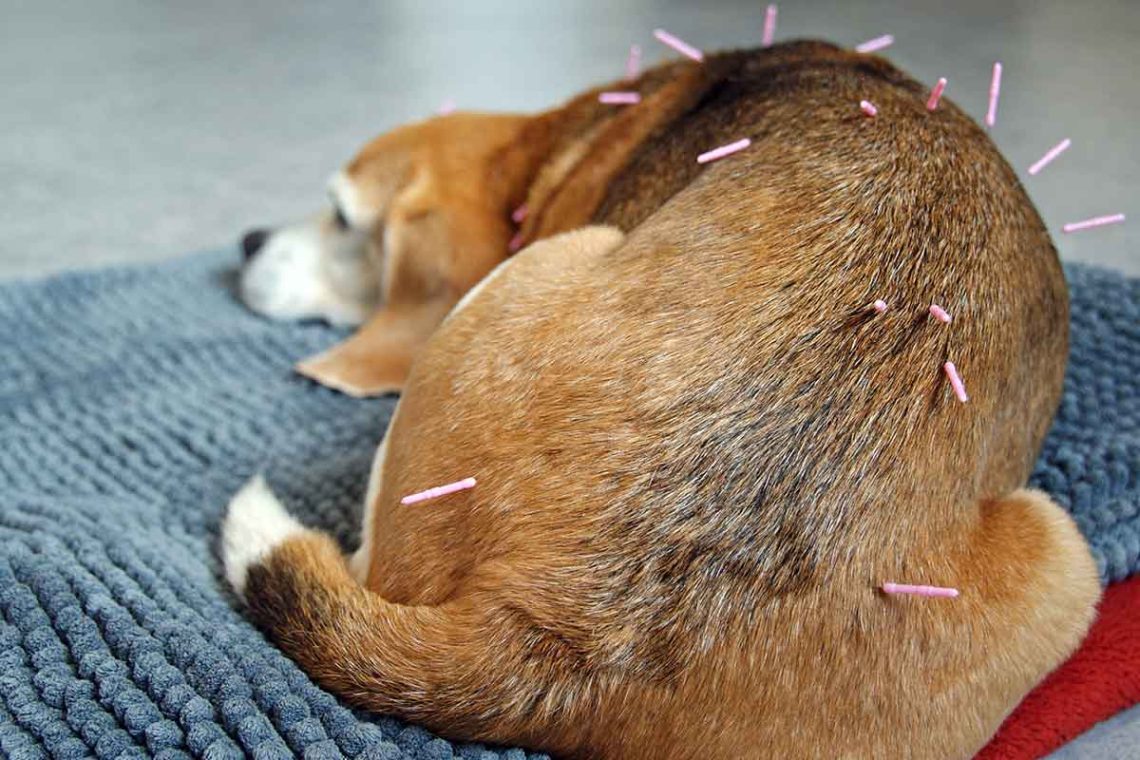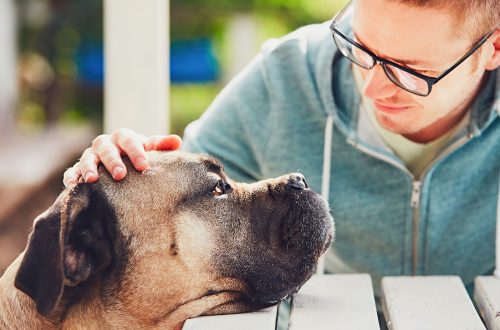
Acupuncture in dogs: why and when you need it
In medicine, acupuncture, or acupuncture, is an alternative treatment for chronic pain. It originates in traditional Chinese medicine and has been used for several millennia. It is commonly used in the treatment of inflammation and pain in animals, with side effects of acupuncture rarely occurring in dogs.
In traditional Chinese medicine, acupuncture is believed to restore the flow of qi, which is the energy that flows through all the channels in the body. In Western medicine, it is believed that acupuncture stimulates the release of hormones that reduce pain and inflammation in the neuro-hormonal channels. Experts also believe that needles improve blood circulation at the injection sites.
Acupuncture for dogs, like for humans, is an alternative medical practice in which very small needles are inserted under the skin to stimulate specific points on the body and produce a healing effect.
Contents
- How does acupuncture for dogs help?
- How to do acupuncture for a dog: frequency of visits to a specialist
- What to Expect During an Acupuncture Session for a Dog
- Side effects of acupuncture in dogs
- How to Find a Veterinarian for Acupuncture
- The cost of the service may depend on the size of the dog and the demand for acupuncture.
How does acupuncture for dogs help?
There are many conditions in animals that can be alleviated with a combination of traditional Western medicine and acupuncture. These include:
- Arthritis and degenerative joint disease. Chronic pain and loss of mobility due to joint disease are the most common reasons dog owners seek help from acupuncturists.
- Intervertebral disc disease and neuralgia. Acupuncture can provide relief for dogs with a herniated disc, spinal arthritis, or a pinched nerve.
- Surgery. Acupuncture can help relieve pain and anxiety associated with surgery and subsequent visits to the veterinarian.
- side effects of cancer. Acupuncture is often used to increase energy levels and relieve pain, nausea, and loss of appetite associated with cancer or its treatment.
- Hormonal or metabolic disorders. Acupuncture can provide relief to dogs suffering from hormonal conditions such as Cushing’s syndrome, hypothyroidism, diabetes, or Addison’s disease. Acupuncture is also useful in animals with liver or kidney disease.
- Injuries. Dog acupuncture can help if the dog has been bitten, hit by a car, broken leg, or other injury that causes pain and inflammation.
- Skin diseases. If the pet is being treated for allergic dermatitis or lick granuloma, veterinary acupuncture for the dog may be used as an adjunctive treatment.
- Problems with the gastrointestinal tract. Acupuncture can help dogs with diarrhea.
- Idiopathic epilepsy. According to the Innovative Veterinary Care Journal, acupuncture may reduce seizures in pets with epilepsy.
In combination with other traditional therapies, dog acupuncture sessions are used as adjunctive therapy for obesity, behavioral disorders, cognitive decline, and general deterioration in well-being.
When choosing alternative methods of treatment, including acupuncture, you should always follow the recommendations of your veterinarian.
How to do acupuncture for a dog: frequency of visits to a specialist
The decision on the number of acupuncture procedures should be made by the veterinarian who will conduct them. Usually the first sessions of acupuncture are carried out at fairly short intervals. When the pet feels better, the time between sessions can be increased.
If acupuncture is being given to a dog in the event of an acute problem, such as recovering from surgery, illness, or injury, the dog may need no more than two or three sessions. If an animal suffers from a chronic condition, such as arthritis, it may need ongoing treatment to relieve pain.
Some dogs feel better after a few sessions, while others can see improvement after the first treatment. As a rule, at least three sessions are recommended to evaluate the effectiveness.

What to Expect During an Acupuncture Session for a Dog
At the first appointment, the veterinarian will ask questions about the health of the pet and conduct a physical examination. He may also recommend additional alternative treatments. These include massage or electroacupuncture – acupuncture, in which the points to which the needles are connected are stimulated by weak discharges of electric current. The first visit usually lasts about an hour, and subsequent visits take 20 to 45 minutes.
The veterinarian will insert needles into certain areas of the dog’s body. For most animals, it is practically painless and imperceptible. Often they relax and even fall asleep.
The calmer the owner himself, the more relaxed the pet will be. If the dog experiences pain or fear during an acupuncture session, sedatives, pain medications, or other options to help the pet feel more comfortable can be discussed. Once the dog understands that he will not be hurt, he will feel better during and after the session.
Side effects of acupuncture in dogs
The most common side effects of acupuncture are soreness, light bleeding, and bruising where the needles are inserted. For a day or two after the session, the dog may appear to be tired or not feeling well, but this is rare.
There are no real contraindications to acupuncture. However, animals suffering from heart disease, a seizure disorder, or certain types of cancer, or pregnant women, should not receive electroacupuncture.
How to Find a Veterinarian for Acupuncture
The two most important things to look out for are the acupuncturist’s veterinary license and the formal training certificate of veterinary acupuncturist.
Your best bet is to use the services of a Certified Veterinary Acupuncturist (CVA). CVAs have a comprehensive training in acupuncture techniques as well as traditional Western education in veterinary medicine. The International Society for Veterinary Acupuncture offers an online database of veterinary acupuncturists in various countries. You can check with your veterinarian to see if they have additional ideas or can recommend a good specialist.
The cost of the service may depend on the size of the dog and the demand for acupuncture.
Although acupuncture is not a panacea, it is safe and has a relatively low incidence of side effects. When combined with traditional Western medicine, it can bring tangible benefits to a sick dog.
See also:
- Arthritis in Dogs: Symptoms and Treatment
- Helping your dog recover from injury or surgery
- Most Common Diseases in Older Dogs
- Your dog and veterinarian





